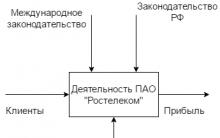1. THE SUBJECT OF THE AGREEMENT
1.1. Under this agreement, the Carrier undertakes to deliver the cargo entrusted to it by the Sender in the amount of , hereinafter referred to as the “Cargo”, to the following destination: , to issue the cargo to the Recipient, and the Sender undertakes to pay the fee established by this agreement for the carriage of the cargo.
1.2. The conclusion of this agreement is confirmed by the drawing up and issuance by the Carrier to the Sender of a waybill (another document for the cargo).
1.3. The shipping fee is Rs.
1.4. Cargo transportation is paid in the following terms and in the following order: .
1.5. The carrier is obliged to deliver the goods to the destination within the time period specified by the transport charters and codes, or within a reasonable time.
1.6. Works and services performed by the Carrier at the request of the Sender and not provided for in this agreement are paid by the Sender at additional agreement sides.
1.7. The carrier has the right to withhold the cargo transferred to him for transportation to secure the carriage due to him and other payments for the carriage.
2. SUPPLY OF VEHICLES. LOADING AND UNLOADING OF CARGO
2.1. The Carrier is obliged to provide the Shipper of the cargo for loading with serviceable vehicles in a condition suitable for the carriage of cargo within the following period: .
2.2. The sender has the right to refuse submitted Vehicle unsuitable for the carriage of goods.
2.3. Loading (unloading) of cargo is carried out by the Sender (Recipient) within the following terms and in the following order: as well as in compliance with the provisions established by transport charters, codes and rules.
3. RESPONSIBILITY OF THE PARTIES FOR BREACH OF CARRIAGE OBLIGATIONS
3.1. In case of non-performance or improper performance of transportation obligations, the Parties shall be liable under the Civil Code of the Russian Federation, other legal acts, as well as the following liability established by agreement of the Parties: .
3.2. Agreements of the Parties on the limitation or elimination of the Carrier's statutory liability are invalid, except in cases where the possibility of such agreements in the course of cargo transportation is provided for by transport charters and codes.
3.3. The carrier for failure to provide vehicles for the carriage of goods within the period specified in clause 2.1. of this agreement, and the Sender shall bear the liability established by legal acts, as well as the following liability stipulated by the agreement of the parties for the failure to present the cargo or non-use of the submitted vehicles: .
3.4. The Carrier and the Sender are released from liability in case of non-delivery of vehicles or non-use of submitted vehicles, if this happened due to:
- force majeure, as well as due to other natural phenomena (fires, drifts, floods) and military operations;
- termination or restriction of the carriage of goods in certain directions, established in the manner prescribed;
- in other cases provided for.
4. CARRIER'S LIABILITY FOR LOSS, SHORTAGE AND DAMAGE TO CARGO
4.1. The Carrier is responsible for the safety of the cargo that occurred after it was accepted for transportation and before it was released to the Recipient, unless he proves that the loss, shortage or damage to the cargo occurred due to circumstances that the Carrier could not prevent and the elimination of which did not depend on him.
4.2. Damage caused during the carriage of goods shall be compensated by the Carrier in the following amount:
- in case of loss or shortage of cargo - in the amount of the value of the lost or missing cargo;
- in case of damage to the cargo - in the amount by which its value has decreased, and if it is impossible to restore the damaged cargo - in the amount of its value;
- in case of loss of cargo handed over for transportation with the declaration of its value - in the amount of the declared value of the cargo.
4.3. The Carrier, along with compensation for the established damage caused by the loss, shortage or damage to the cargo, returns to the Sender the carriage fee charged for the transportation of the lost, missing, spoiled or damaged cargo, since, according to this contract, this fee is not included in the cost of the cargo.
4.4. Documents on the reasons for the non-safety of the cargo (commercial act, act of a general form, etc.), drawn up by the Carrier unilaterally, are subject to evaluation by the court in case of a dispute, along with other documents certifying the circumstances that may serve as the basis for the liability of the Carrier, the Sender or the Recipient cargo.
5. FINAL PROVISIONS
5.1. Prior to filing a claim against the Carrier arising from the carriage of goods, the Sender (Recipient) is obliged to present a claim to him in the manner prescribed.
5.2. In everything else not regulated by this agreement, the provisions of the Civil Code of the Russian Federation will apply.
Contract for the carriage of goods
An agreement governing relations for the movement of goods or people using a car.
Forms and procedure for concluding a contract
The contract for the carriage of goods is drawn up according to the rules of Chapter 40 of the Civil Code of the Russian Federation.
The parties to the agreement are:
- Carrier - a party that undertakes to carry out the transportation and deliver the goods (cargo) to the specified address and hand it over to the recipient.
- Shipper - a person who undertakes to pay for the services of cargo transportation.
The sender of the goods can be either an individual or an organization. However, only a legal entity licensed for this type of service can carry out cargo transportation.
The sender issues to the carrier a bill of lading or other document for the cargo specified in the Charter of Transport. The issuance of an invoice confirms the conclusion of an agreement (clause 2, article 785 of the Civil Code of the Russian Federation).
According to article 785 of the Civil Code of the Russian Federation, the carrier organization assumes obligations for the delivery of goods to the destination and transfer to the addressee, as well as the safety during transportation, loading and unloading of goods.
If you need a one-time service for the transportation of things (apartment or office moving), then they conclude a one-time contract for the carriage of goods (Article 785 of the Civil Code of the Russian Federation).
If permanent cooperation is necessary, an agreement on the organization of transportation is drawn up (Article 798 of the Civil Code of the Russian Federation).
An agreement on the transportation of goods by road is drawn up in the following ways:
- Issuing a bill of lading.
- Registration of the contract of carriage and application.
Issuing a bill of lading
The waybill (TN) is a confirmation of the application for the provision of services for the carriage of goods. The TN is filled in by the sender of the cargo, after the signing by the parties, the contract for the carriage of goods by road is considered concluded. Without registration of the TN, the carrier has no right to accept the goods. The bill of lading is drawn up for 1 or more shipments in triplicate.
Registration of the contract of carriage and application
One-time contract for the carriage of goods. The contract of carriage can be drawn up by sending an application to the carrier (5, article 8 of the Federal Law No. 259). The application is an addition to the main contract on the organization of cargo transportation and is not an independent contract of transportation.
The application contains all the necessary information about the transportation and is small in size. It is compiled in the form of a table, where all the parameters of the service are indicated.
Conditions of carriage
Each specific type of cargo and its route has its own rules. The terms of the contract of carriage depend on the type of transport. When road transport are guided by the Charter of Road Transport, as well as the Rules for the Carriage of Goods by Road (PPGAT).
The contract for the carriage of goods shall specify: transport service, the terms of the provision of transport and the terms of delivery of the cargo, the cost of the freight charge, payment methods, the address of the point of departure and destination, information about the cargo.
Sooner or later every entity is faced with an issue or other material from one place to another. A similar problem may appear in ordinary citizens.
Dear readers! The article talks about typical ways to solve legal issues, but each case is individual. If you want to know how solve exactly your problem- contact a consultant:
APPLICATIONS AND CALLS ARE ACCEPTED 24/7 and 7 days a week.
It's fast and IS FREE!
Considering the solution of the issue from an economic point of view, in most cases, it would be more expedient to use road transport, since it is the lowest.
The obligations of the parties in this situation are governed by the contract for the carriage of goods, which reflects the main nuances of the transaction and regulates the subsequent acceptance of the goods and the process of payment for the fulfillment of obligations by the carrier. In addition, the document contains a number of features inherent in a particular situation.
Legislation
Carriage of goods by motor transport is the most popular method applicable at the moment. Transportation by cars requires complex highly organized preparatory work and is accompanied by certain risks.
The ordering of the cargo transportation procedure, the observance of the interests and rights of the parties takes place using specially developed rules and principles.
From the diverse list of legal documentation, a number of key points can be distinguished, listed in the following legislative acts:
- Civil Code of the Russian Federation Part 2 Federal Law No. 14 dated 26.01.1996 as amended on 05.12.2017 Art. 785 and Art. 798 (GK RF).
- Violation of the rules for the transport of dangerous goods.
- Federal Law No. 259 of 08.11.2007
- Federal Law No. 16 dated 09.02.2007
- Government Decree No. 272 dated April 15, 2011 as amended on March 16, 2018
- Government Decree No. 1090 dated 10/23/1993, last amended on 02/13/2018
Each of the presented legal norms affects the situation with the contract for the carriage of goods. One document directly regulates its use, another may concern it indirectly.
- Art. 34 "Responsibility of the carrier, charterer".
- Art. 35 "Responsibility of the consignor, consignee, charterer ...".
Each of the presented acts regulates the relations of the parties in case of non-compliance with the terms of the agreement concluded between them:
- Failure to export or present the cargo to the other party is punishable by a fine of 20% of the previously agreed cost of the service. Other measures may be applied provided that it is stipulated by a previously signed agreement. In addition, the party that is not guilty of non-fulfillment of obligations has the right to demand compensation from the other party for the losses incurred in accordance with the legislation of the Russian Federation.
- Failure to provide or refuse to use the provided vehicle is punishable by a fine of 20% of the previously agreed cost of providing the service. A party not involved in the default has the right to demand compensation from the other party for losses incurred in accordance with the legislation of the Russian Federation.
In addition to the above measures, regulations characterize other conditions of non-compliance with the obligations prescribed in the contract for transportation. With regard to the liability of the consignor and consignee, 9 points are applicable, for the carrier: 18. You can familiarize yourself with them in full version cited articles.
Transportation of goods is a process that requires a package of mandatory documentation for its implementation. The contract of carriage by road is one of the main ones, emphasizing the rights and obligations of each of the parties to the transaction.
The form of the document "Contract for the carriage of goods" refers to the heading "Contract for the carriage, transport expedition". Save a link to the document in in social networks or download it to your computer.
CONTRACT
cargo transportation
__________________ "____"_____________________
____________________________________________________________________________,
(name of company)
hereinafter referred to as the "Carrier", represented by ________________________________________________________________________________,
and __________________________________________________________________________,
(name of company)
hereinafter referred to as the "Sender", represented by ____________________________________,
(surname, initials, position)
acting on the basis ____________________________________________________,
(charter, regulations, powers of attorney)
have entered into this Agreement as follows:
1. THE SUBJECT OF THE AGREEMENT. CARRIAGE FEE
1.1. Under this agreement, the Carrier undertakes to deliver the cargo entrusted to him by the Sender __________________________________________________________
(cargo transfer)
in the amount of ____________________, hereinafter referred to as the cargo, to the following destination: _________________________, to issue the Cargo to the Recipient, and the Sender undertakes to pay the fee established by this agreement for the carriage of the cargo.
1.2. The conclusion of this agreement is confirmed by the drawing up and issuance by the Carrier to the Sender of a waybill (another document for the cargo).
1.3. The shipping fee is _______________________________________________.
(in words)
1.4. Carriage of cargo is paid in the following terms and in the following order: _______________________________________.
2. OBLIGATIONS OF THE PARTIES
2.1. The sender must:
2.1.1. Transfer the above cargo to the Recipient within the time agreed by both parties.
2.1.2. Pay for the carriage of goods, for works and services performed by the Carrier at the request of the Sender, within the terms agreed in this agreement.
2.1.3. Pay, by additional agreement of the parties, for services not provided for by this agreement, performed by the Carrier at the request of the Sender.
2.1.4. Submit an application to the Carrier for the carriage of goods in the prescribed form on time _____________________________________.
2.1.5. Issue to the Carrier a bill of lading (another document for the cargo).
2.2. The sender has the right:
2.2.1. Refuse submitted vehicles unsuitable for the carriage of goods.
2.3. The carrier is obliged:
2.3.1. Deliver the cargo to the destination within the period specified by the transport charters and codes, or within a reasonable time.
2.3.2. Submit to the Sender of the cargo for loading serviceable vehicles in a condition suitable for the carriage of cargo, within the following period: __________________________.
2.3.3. Issue, in case of non-collection of the cargo, a statement drawn up by the Carrier unilaterally, on the circumstances under which the cargo was lost, and the amount of unsaved Cargo.
2.4. The carrier has the right:
2.4.1. Withhold the cargo transferred to him for transportation in order to secure the carriage due to him and other payments for transportation.
3. SUPPLY OF VEHICLES.
LOADING AND UNLOADING OF CARGO
3.1. Loading (unloading) of cargo is carried out by the Sender (Recipient) within the following terms and in the following order: ______________________________, as well as in compliance with the provisions established by transport charters, codes and rules.
4. RESPONSIBILITY OF THE PARTIES FOR VIOLATIONS
CARRIAGE OBLIGATIONS
4.1. In case of non-performance or improper performance of transportation obligations, the parties shall bear the responsibility established by the Civil Code of the Russian Federation, other legal acts, as well as the following liability established by agreement of the parties: __________________________________________.
4.2. The carrier for failure to provide vehicles for the carriage of goods within the time period stipulated
sub. 2.1 of this Agreement, and the Sender shall bear the liability established by legal acts, as well as the following liability stipulated by the agreement of the parties for failure to present the cargo or non-use of the submitted vehicles: ___________________________________________.
4.3. The Carrier and the Sender are released from liability in case of non-delivery of vehicles or non-use of submitted vehicles, if this happened due to:
force majeure, as well as due to other natural phenomena (fires, drifts, floods) and military operations;
termination or restriction of the carriage of goods in certain directions, established in the manner prescribed by law.
5. LIABILITY OF THE CARRIER FOR LOSS,
SHORT AND DAMAGED CARGO
5.1. The Carrier shall be liable for the non-safety of the cargo that occurred after it was accepted for carriage and before its release to the Recipient, unless it proves that the loss, shortage or damage to the Cargo occurred due to circumstances that the Carrier could not prevent and the elimination of which did not depend on him.
5.2. Damage caused during the carriage of goods shall be compensated by the Carrier:
in case of loss or shortage of cargo - in the amount of the cost of the lost or missing cargo;
in case of damage to the cargo - in the amount by which its value has decreased, and if it is impossible to restore the damaged cargo - in the amount of its value;
in case of loss of cargo handed over for transportation with the declaration of its value - in the amount of the declared value of the cargo.
The value of the cargo is determined on the basis of its price indicated in the Seller's invoice (and in the absence of an invoice, on the basis of the price that, under comparable circumstances, is usually charged for similar goods).
5.3. The Carrier returns to the Sender the freight charge collected for the transportation of lost, missing, damaged or damaged cargo, since, according to this contract, this fee is not included in the cost of the cargo.
6. FINAL PROVISIONS
6.1. Prior to filing a claim against the Carrier arising from the carriage of cargo, the Sender (Recipient) is obliged to present a claim to him in the manner prescribed by law.
6.2. In everything else not regulated by this Agreement, the provisions of the Civil Code of the Russian Federation, other legislation on transportation by this type of transport will apply.
6.3. The Agreement comes into force from the moment of its signing, drawn up in _______ copies.
7. Legal addresses and banking
details of the parties
Carrier ________________________________________________
Sender ___________________________________________
8. Signatures of the parties:
Carrier __________________
Sender _________________
-
It is no secret that office work has a negative impact on both the physical and mental state of the employee. There are quite a lot of facts confirming both. -
At work, each person spends a significant part of his life, so it is very important not only what he does, but also who he has to communicate with.
This section presents the documents that may be required for the carriage of goods.
I. When transporting goods, the following can be issued:
In the absence of an agreement on the organization of transportation of goods, the carriage of goods is carried out on the basis of an order accepted by the carrier for execution.
II. In case of disputes
In the event of disputes during the transportation of goods, the parties involved in the transportation may need the following documents:
The rules for the carriage of goods by road established that the act contains:
- date and place of drawing up the act;
- surnames, names, patronymics and positions of persons participating in the preparation of the act;
- short description the circumstances that served as the basis for drawing up the act;
- in case of loss or shortage of cargo, damage (spoilage) of cargo - their description and actual size;
- signatures of the parties involved in drawing up the act.
Act example:(Act form in MS Word)
One way to resolve controversial situation arising during the transportation of goods is the direction of the claim to the counterparty.
The need to send a claim may be established by law or contract.
- Filing a claim is prescribed by law
Civil Code of the Russian Federation in Art. 797 establishes that before filing a claim against the carrier arising from the carriage of goods, it is mandatory to file a claim with him in the manner prescribed by the relevant transport charter or code.
According to Art. 39 of the UAT of the Russian Federation, before filing claims against carriers arising from contracts for the carriage of goods, such persons must be presented with claims. Persons who have concluded transportation contracts, charter contracts, consignees, as well as insurers who have paid insurance compensation in connection with improper performance by carriers, charterers of their obligations for the carriage of passengers and baggage, cargo, provision of transport means for the transportation of passengers and baggage, cargo. The procedure for filing claims is established by the rules for the carriage of passengers, the rules for the carriage of goods.
In accordance with the Rules for the carriage of goods by road, claims are made to carriers (freighters) at their location in writing during the limitation period.
The claim contains:- date and place of compilation;
- full name (surname, name and patronymic), address of the location (place of residence) of the person who filed the claim;
- full name (surname, name and patronymic), address of the location (place of residence) of the person to whom the claim is made;
- a brief description of the circumstances giving rise to the claim;
- justification, calculation and amount of the claim for each claim;
- a list of attached documents confirming the circumstances set forth in the claim (act and consignment note, order-order with marks, etc.);
- surname, name and patronymic, position of the person who signed the claim, his signature, certified by a seal.
In accordance with Art. 12 of the Federal Law “On Freight Forwarding Activities”, before filing a claim against the forwarder arising from the freight forwarding agreement, it is mandatory to file a claim with the forwarder, with the exception of filing a claim in the provision of forwarding services for personal, family, household and other needs not related to the client’s entrepreneurial activities.
The client or the person authorized by him to file a claim and a claim, the recipient of the cargo specified in the freight forwarding contract, as well as the insurer who has acquired the right of subrogation, has the right to present a claim and claim to the freight forwarder.
The claim is made in writing. A claim for loss, shortage or damage (spoilage) of cargo must be accompanied by documents confirming the right to file a claim, and documents confirming the quantity and value of the shipped cargo, in the original or copies certified in the prescribed manner.
Claims against the freight forwarder may be brought within six months from the day the right to file a claim arises. The specified period is calculated in relation to:- compensation for losses for loss, shortage or damage (spoilage) of cargo from the day following the day when the cargo must be issued;
- compensation for losses caused to the client by violation of the deadline for fulfilling obligations under the transport expedition agreement, from the day following the last day of the agreement, unless otherwise specified by the parties;
- violation of other obligations arising from the contract of transport expedition, from the day when the persons specified in paragraph 2 of this article learned or should have known about such violations.
- The claim procedure is stipulated by the contract
As a rule, such a procedure is prescribed in a section of the contract containing possible cases of disagreements and ways to resolve them. How clearly and in detail the procedure for pre-trial dispute resolution should be prescribed by the parties to the contract is determined independently.
The contract should establish a clear procedure for the actions to be taken by the counterparty before going to court (terms for sending and considering a claim, documents to be submitted with a claim, etc.). Claims must be clearly stated and substantiated.
The claim must indicate:- the name of the person (legal entity/individual entrepreneur) to whom the claim is addressed;
- the name of the person from whom the claim is sent, indicating the exact postal address, means of communication (telephone, fax, etc.), and payment details;
- claim number and date;
- documents (with details) on which the relations of the parties are based: for example, a contract of carriage, an application, waybills, etc.;
- clauses of the contract, the violation of which caused the filing of a claim
- requirements of the person submitting the claim (should be set out clearly). The claim should be warned about the subsequent appeal to the court in case of non-satisfaction of the claim or failure to consider it in the prescribed manner or on time;
- the legislation in accordance with which the person submitting the claim substantiates his claims;
- the amount of claims with the calculation;
- a list of attached documents substantiating the claims (or a reference should be made that the addressee has all the documents for considering the claim, in this case, the specified documents should be listed).
In accordance with Art. 41 of the UAT RF, when filing claims in the manner prescribed by Article 39 of the UAT RF, claims against carriers, charterers that have arisen in connection with the transportation of passengers and baggage, cargo or the provision of vehicles for the transportation of passengers and baggage, cargo, may be brought in cases full or partial refusal of carriers, charterers to satisfy claims or in cases of non-receipt of responses to claims from carriers, charterers within thirty days from the date of receipt of relevant claims by them.
According to Art. 42 UAT RF, the limitation period for claims arising from transportation contracts, charter contracts is one year. The specified period is calculated from the date of occurrence of the event that served as the basis for filing a claim or lawsuit, including in relation to:
- compensation for damage caused by shortage, damage (spoilage) of baggage, cargo, from the date of issue of baggage, cargo;
- compensation for damage caused by the loss of baggage, from the date of recognition of the baggage as lost;
- compensation for damage caused by the loss of cargo, from the day the cargo was recognized as lost;
- delay in the delivery of baggage, cargo from the date of issue of baggage, cargo.
According to Art. 125 APC RF:
- the claim is filed in court of Arbitration in writing. The statement of claim shall be signed by the plaintiff or his representative. A statement of claim can also be filed with the arbitration court by filling out the form posted on the official website of the arbitration court in the information and telecommunication network "Internet"
- The claim must include:
- the name of the arbitration court to which the claim is filed;
- name of the plaintiff, his location; if the plaintiff is a citizen, his place of residence, date and place of his birth, place of his work or date and place of his state registration as individual entrepreneur, phone numbers, fax numbers, addresses Email claimant;
- name of the defendant, his location or place of residence;
- the plaintiff's claims against the defendant with reference to laws and other regulatory legal acts, and in the event of a claim against several defendants, the claims against each of them;
- the circumstances on which the claims are based, and the evidence confirming these circumstances;
- the value of the claim, if the claim is subject to evaluation;
- calculation of the sum of money recovered or disputed;
- information on the plaintiff's compliance with the claim or other pre-trial procedure, if it is provided for by federal law or an agreement (from June 1, 2016, Federal Law No. 47-FZ of 02.03.2016 amends clause 8 of part 2 of article 125);
- information about the measures taken by the arbitration court to ensure property interests before filing a claim;
- list of attached documents.
- the plaintiff is obliged to send to other persons participating in the case, copies of the statement of claim and the documents attached to it, which they do not have, by registered mail with acknowledgment of receipt.
In accordance with Art. 126 APC RF:
- Attached to the claim are:
- notice of delivery or other documents confirming the sending to other persons participating in the case of copies of the statement of claim and documents attached to it, which other persons participating in the case do not have;
- proof of payment state duty in accordance with the established procedure and in the amount or the right to receive benefits for the payment of the state fee, or a petition for a deferral, installment plan, or a reduction in the amount of the state fee;
- documents confirming the circumstances on which the plaintiff bases his claims;
- copies of the certificate of state registration as a legal entity or individual entrepreneur;
- a power of attorney or other documents confirming the authority to sign the statement of claim;
- copies of the ruling of the arbitration court on securing property interests prior to filing a claim;
- documents confirming the plaintiff's compliance with the claim or other pre-trial procedure, if it is provided for by federal law or an agreement (from June 1, 2016, Federal Law No. 47-FZ of 02.03.2016 amends clause 7 of part 1 of article 126);
- a draft agreement, if a demand is made to compel the conclusion of an agreement;
- extract from the single state register legal entities or the unified state register of individual entrepreneurs indicating information about the location or place of residence of the plaintiff and defendant and (or) the acquisition individual the status of an individual entrepreneur or the termination by an individual of activities as an individual entrepreneur or another document confirming the specified information or lack thereof. Such documents must be received no earlier than thirty days before the day the plaintiff applies to the arbitration court.
- Documents attached to the statement of claim may be submitted to the arbitration court in electronic form.
Normative legal acts used in this section of the site:
- "Convention on the Treaty of International road transport Freight (CMR)" (Concluded in Geneva on May 19, 1956) (Entered into force for the USSR on December 1, 1983);
- Civil Code Russian Federation;
- "Arbitration Procedural Code of the Russian Federation";
- the federal law dated 08.11.2007 N 259-FZ "Charter of road transport and urban ground electric transport";
- Federal Law No. 87-FZ of June 30, 2003 "On Forwarding Activities";
- General rules transportation of goods by road (approved by the Ministry of Autotransport of the RSFSR on July 30, 1971);
- Rules for the carriage of goods by road (approved by Decree of the Government of the Russian Federation of April 15, 2011 No. 272);
- Decree of the Government of the Russian Federation No. 554 dated 08.09.2006 “On Approval of the Rules for Forwarding Activities”;
- Decree of the State Statistics Committee of Russia No. 78 dated November 28, 1997 “On approval of unified forms of primary accounting documentation for accounting for the operation of construction machines and mechanisms, work in road transport”;
- Decree of the State Statistics Committee of the Russian Federation of December 25, 1998 N 132 "On approval of unified forms of primary accounting documentation for accounting for trade operations";
- Order of the Ministry of Transport of the Russian Federation No. 23 dated February 11, 2008 “On approval of the procedure for processing and forms of forwarding documents”;
- Order of the Ministry of Transport of the Russian Federation of September 18, 2008 N 152 "On the approval of mandatory details and the procedure for filling out waybills";
- Instruction of the Ministry of Finance of the USSR No. 156, State Bank of the USSR No. 30, CSB SSR No. 354/7, Ministry of Transport of the RSFSR No. 10/998 “On the procedure for settlements for the carriage of goods by road”;
- Letter of the Federal Tax Service No. ШС-22-3/660 dated 21.08.2009 “On the submission of systematized materials for documenting operations during the transportation of goods”.











Quality requirements
Peat resources Milling peat extraction
Closed Joint Stock Company Transtelecom
Setting up Wi-Fi equipment
Pasteurization drawer for the selection of "heads" during rectification